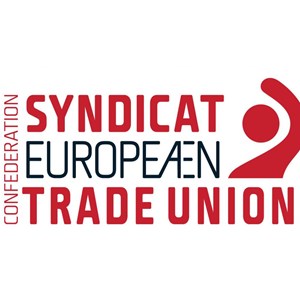Isabelle Schömann, ETUC Confederal Secretary, was invited to speak at the 7th European conference on standardization, testing and certification in the field of occupational safety and health (EUROSHNET), which took place in Paris on 20 October. The Conference was dedicated this year to ‘Artificial Intelligence meets Safety and Health at work’, and Ms. Schömann participated in the roundtable addressing ‘The challenges of AI on standardization, testing and certification’, where she noted that standards are not sufficient to protect workers from the application of AI systems at work.
The use of AI in employment raises specific concerns which include, but are not limited to, disproportionate and undue surveillance at work, discriminatory treatments on the basis of biased algorithms, and the risk of abuse of data protection and privacy. The technical guidance provided by standards can help design and develop AI systems that are in conformance with the requirements of the proposed AI Act. Nevertheless, standards alone cannot guarantee that the use of AI systems, in particular in the workplace, will promote and protect fundamental rights, including workers’ rights, as set out by the legislation.
National awareness raising event in France
On 24 October, the ETUC joined forces with its French affiliates and Eurocadres in the organisation of a national awareness event on standardization in Paris. The event was held in AFNOR, which gave trade unions the opportunity to exchange directly with their National Standardization Bodies.
The main objective of the event was to inform the French trade unions about standards setting activities, update them on the recent developments in Europe, and to discuss the role of trade unions in standardization. The event featured practical cases that aimed at showing how standards can have an impact on workers, their link with legislation, and at sharing best practices for increased trade union participation.
For more information, please contact Natalia GIORGI at ETUC.

Giovanni COLLOT
gcollot@cencenelec.eu



